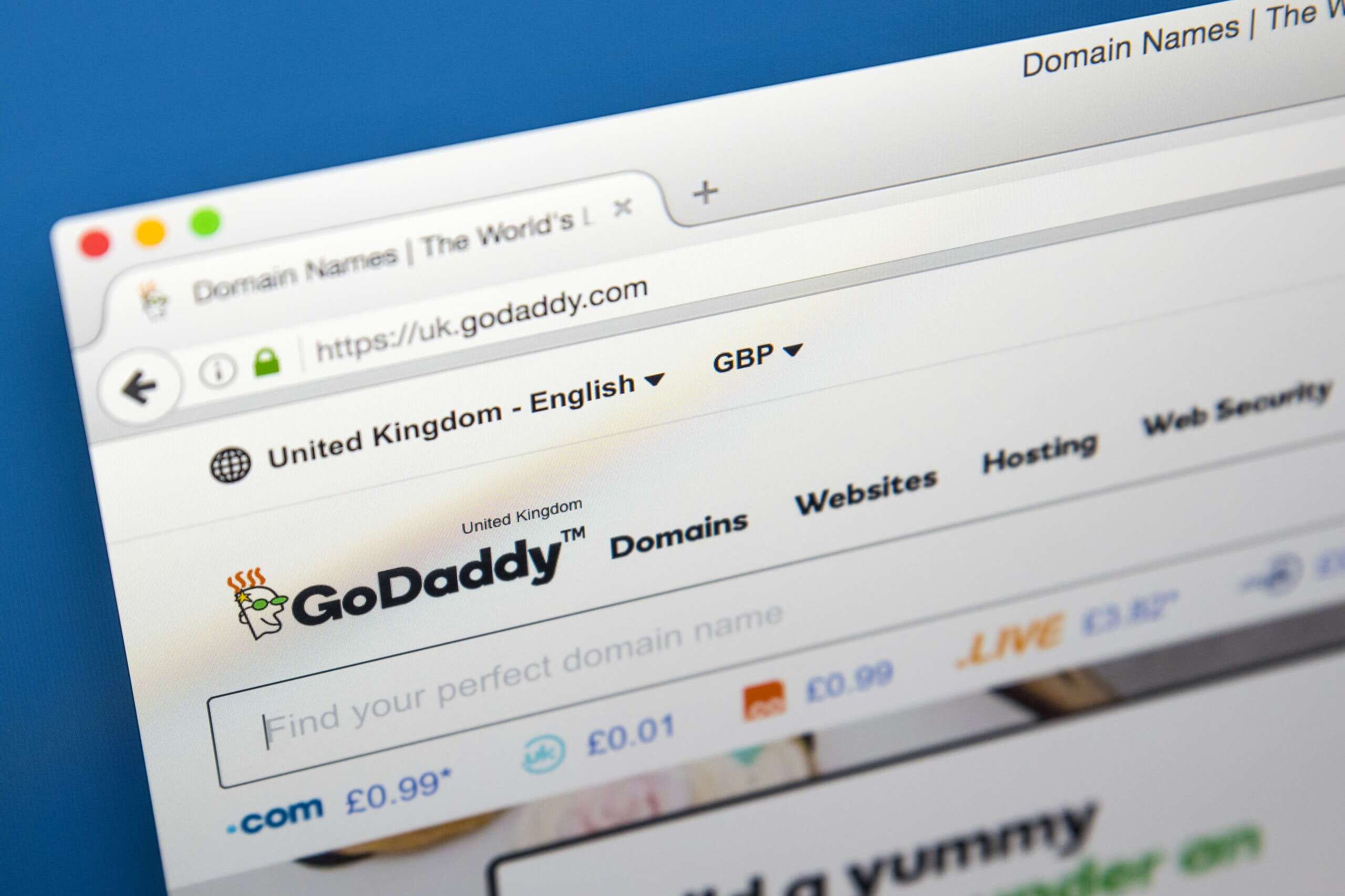The Standard .vs. The Latest-N-Greatest?
Those of us who’ve been in this industry for a while have seen this pattern repeat itself – over, and over, and over. A new platform comes along touting its advantages of ease of design and lures in people unaware of its entrapment’s, constraints and limitations – let alone security vulnerabilities. This is a story almost as old as the internet itself – but the truth is, the web did beat Microsoft’s Front Page into existence by almost a decade – but this isn’t an ancient history piece – or a forensic examination of failure – so we’ll proceed to our main topic – WordPress .vs. Squarespace.
History Rhymes & Repeats,
The same pattern emerges over and over. A few years pass, a new supposedly easy-to-use website platform of a similar type emerges and steals the limelight from the former – as the obsolescent technology of the elder platform subsumes it in an almost inevitable red tide of complaints, problems and reputational damage that is irrevocable.
This has happened to so many platforms that by now it’s become a story told a thousand times, and an entire piece could be written focused on the histrionics of it. But this isn’t a comedy, behind this process is a real wreckage trail of real victim businesses, entrepreneurs and failed dreamers whose website goals rot on the grapevine of despair as their formerly enraptured joy of drag-and-drop turns to a hellscape or entrapment, obsolescence and the need to escape platforms that have entangled them and their businesses in a techno-nightmare from which they must be extricated at great effort.
As developers, we watch from the sidelines. With our faces aghast, we usually say nothing – we are, after all, mere spectators to an ever repeating story that we’re ultimately called in – and paid – to clean up.
Maybe we should be happy? After all, this feeds our industry – a sizable piece of any developers client profile is stocked with real businesses that needed websites, whose owners, well-intentioned and poorly-informed, ran headlong into advertising claims of success on these platforms, only to eventually seek our counsel to help them right the ship of their websites.

Squarespace Emerges
The newest kid on the proverbial block is Squarespace. Ah, with it’s gleaning advertisements featuring the likes of Karlie Kloss and numerous other celebrities, influencers and advertisements, it touts itself as they all have and some still do – the ultimate easy to use platform. The question – is it?.
For some individuals who need a quick website and don’t mind its limitations – no doubt it is. For many other, more serious businesses, though, we’ll stake our claim firmly in the nay camp – as this is what judicious experience and the long eye of history says is true to us.
WordPress .vs. Squarespace – Why WordPress?
So, in this piece we’ll digress into a real analysis and discussion of what it means to go with Squarespace – from a business owner’s perspective and not as evangelists for it or anything else. Even as we must compare Squarespace to WordPress, we don’t do so out of a rabid fan-like craze for WordPress. WordPress is the dominant platform now and has been for pushing two decades.
WordPress is to the web what concrete, sheetrock, plywood and pine are to the building trade – it’s the standard against which other materials are compared. So if something better did come along, we would indeed use it, but it simply hasn’t, so here we are.
WordPress is what we – as professionals – use, just as carpenters wield DeWalt impact drivers to stake deck screws into 2×4’s to build decks, we hammer out PHP, XHTML and CSS on our keyboards to build websites on Wordpress. It doesn’t make Wordpress inherently incredible – but it does make it the standard against which all others should be benchmarked.
As you read this, please keep in mind, we’re technologists, most of us have changed tools dozens of times over the years – some of us, scores more. We’re not cheerleaders for any single piece of software and our objection is not to change – it’s to its opposite, it’s to stagnation, entrapment and limitation.
Now, onward to our analysis, let’s talk about Squarespace and compare it to the timeless champion in relative terms – WordPress CMS (Content Management System), the platform chosen by the lions share of developers, businesses and institutions worldwide on the internet for decades now.
The Shackles of Squarespace: Why WordPress Reigns Supreme for Businesses
When it comes to building a robust and future-proof online presence, the choice between WordPress and Squarespace has long been a subject of fierce debate. While Squarespace may tout its effortless drag-and-drop design capabilities and all-in-one convenience, the harsh reality is that this platform’s limitations far outweigh its superficial allure. In contrast, the open-source juggernaut that is WordPress offers unparalleled flexibility, customization, and long-term scalability – traits that are essential for any business seeking to thrive in the digital landscape.

The Illusion of Simplicity: Squarespace’s Gilded Cage
Squarespace’s primary selling point is its user-friendly interface and the promise of a quick and painless website-building experience. For those with limited technical expertise, this may seem like a tempting proposition. However, this veneer of simplicity conceals a far more sinister reality – Squarespace’s iron-clad grip on its users’ data and digital assets.
Locked in the Squarespace Ecosystem
One of the most insidious aspects of Squarespace is its walled-garden approach. Unlike the open-source nature of WordPress, Squarespace confines its users within a tightly controlled ecosystem, where the platform dictates the design, functionality, and even the future of their websites. This means that should a Squarespace user ever decide to migrate their site elsewhere, they are faced with the daunting task of completely rebuilding their online presence from scratch, as Squarespace’s proprietary templates and design elements are not portable.
The Tyranny of Ownership
Moreover, Squarespace’s stranglehold on its users extends to the very essence of their online identity – their domain name. While Squarespace offers domain registration as part of its service, the platform retains ownership of these domains, effectively holding its customer’s hostage. Should a Squarespace user ever decide to leave the platform, they are forced to either pay exorbitant fees to transfer their domain or start from scratch with a new domain name, severing the hard-earned brand recognition and online presence they had painstakingly built.

The Boundless Potential of WordPress
In stark contrast to Squarespace’s walled garden, WordPress stands as a beacon of freedom and limitless possibilities. As an open-source content management system, WordPress empowers its users to take full control of their digital assets, from the design and functionality of their website to the ownership of their domain and hosting.
This may matter very little for businesses initially, however, as time moves on and priorities change, businesses often find they need more from their websites. When reality bites that they cannot add a feature, move to a different host, or even integrate a key business system – this is when and where the choice to not go with WordPress sinks in – they are trapped.
Unparalleled Customization and Scalability
The true power of WordPress lies in its vast ecosystem of plugins, themes, and third-party integrations. This expansive library of tools allows WordPress users to tailor their websites to their exact specifications, whether they’re looking to enhance their e-commerce capabilities, improve their search engine optimization, or integrate advanced analytics and marketing features. As a business grows and its needs evolve, WordPress seamlessly scales to accommodate these changes, ensuring that the website remains a dynamic and responsive reflection of the organization.
The Advantage of Ownership
One of the most significant advantages of WordPress is the ownership it grants its users. Unlike Squarespace, which maintains a tight grip on its customers’ domains and digital assets, WordPress allows its users to register and own their domain names outright. This means that should a WordPress user ever decide to migrate their site to a different hosting provider or platform, they can do so with ease, taking their domain and all of their content with them, preserving their hard-earned brand and online presence.
The Perils of Relying on a Third-Party Platform
While the allure of Squarespace’s plug-and-play simplicity may initially seem appealing, the long-term implications of this approach cannot be overstated. By entrusting a third-party platform with the core of their online presence, businesses are effectively ceding control and relinquishing their autonomy, leaving themselves vulnerable to the whims and policies of the platform provider.
The Risks of Hosting Dependence
One of the most significant drawbacks of Squarespace is its hosting dependence. Unlike WordPress, which allows users to choose from a wide range of hosting providers, Squarespace forces its users to rely on its own proprietary hosting services. This not only limits the flexibility and control that businesses have over their website’s infrastructure, but it also exposes them to the potential risks and vulnerabilities inherent in a single-provider hosting solution.
The Fragility of Third-Party Platforms
Furthermore, the reliance on a third-party platform like Squarespace introduces an inherent fragility into a business’s online presence. Should Squarespace experience any service disruptions, technical issues, or even a change in its policies, the impact on the businesses that depend on it can be catastrophic. In contrast, the self-hosted nature of WordPress allows for greater resilience and independence, ensuring that a business’s online operations are not held hostage by the decisions and actions of a third-party provider.
The Long-Term Advantage of WordPress
When it comes to building a sustainable and future-proof online presence, the choice between WordPress and Squarespace becomes increasingly clear. While Squarespace may offer a tempting illusion of simplicity, the long-term implications of its limitations and constraints far outweigh any short-term benefits.\
Unparalleled SEO Capabilities
One of the key advantages of WordPress is its unparalleled search engine optimization (SEO) capabilities. With a vast ecosystem of SEO-focused plugins and tools, WordPress empowers businesses to optimize their online presence for maximum visibility and discoverability, ensuring that their website ranks higher in search engine results and attracts a steady stream of targeted traffic.
The Power of Control and Ownership
Moreover, the ownership and control that WordPress grants its users are essential for the long-term success and stability of a business’s online presence. By retaining full control over their domain, hosting, and digital assets, WordPress users can adapt and evolve their websites as their needs change, without the fear of being held hostage by a third-party platform’s policies or limitations.
The Adaptability to Grow and Scale
As businesses expand and their digital requirements become more complex, the flexibility and scalability of WordPress become increasingly crucial. Unlike Squarespace, which may struggle to accommodate advanced features and functionalities, WordPress seamlessly integrates a wide range of plugins and third-party integrations, ensuring that a business’s online presence can grow and evolve in lockstep with its changing needs.
Conclusion: Embrace the Freedom and Potential of WordPress
In the ever-evolving digital landscape, the choice between WordPress and Squarespace is not merely a matter of website-building convenience, but a critical decision that can have far-reaching implications for a business’s long-term success and sustainability. While Squarespace may offer a tempting facade of simplicity, the reality is that its limitations and constraints ultimately hold businesses hostage, compromising their autonomy and stunting their potential for growth.
In contrast, WordPress emerges as the clear champion, offering unparalleled customization, scalability, and ownership – the essential ingredients for building a robust and future-proof online presence. By embracing the potential of WordPress, businesses can unlock a world of possibilities, empowering them to adapt, evolve, and thrive in the ever-changing digital realm.
WordPress Web Design by Integrity Marketing
Ready to start your WordPress Website?
About the author
April Young
April is our Project and Content Manager, known for her strong communication skills. With years of experience in SEO, copywriting, project planning, and contract management, she excels in creating compelling website content and leading a dynamic team of copywriters, web designers, and contractors.




